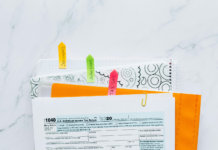Living paycheck to paycheck can feel debilitating and frustrating. Imagine working hard every day with the knowledge that what you will be paid at the end of the week or month will barely cover your essentials.
Since you are unable to put away something for a rainy day, you live hoping no crisis emerges that calls for a large amount of cash. Occasional splurges – upgrading your car or taking your family even on a budget holiday – seem completely out of reach. Worse still, you may be servicing debts from multiple creditors.
If this is the cycle you find yourself caught in, you’re not alone. This is the plight of more than half of America, and it’s not simply a matter of how much you earn. Over 60 percent of the people living paycheck to paycheck earn more than $100,000 annually.
How do you break yourself of this debilitating cycle and regain control of your finances? Here are some tips you can try.
Review Your Finances
A good place to start is to look at how much money you have at your disposal. In addition to your salary, you could have additional income from maturing investments or tax refunds. Including an overview of your income in your budget will help you resist the urge to frit away extra income.
After you have a handle on your income, you can look at your essential expenses. Working with as accurate estimates of the prices of these items as you can, determine if you will have anything left over after purchase.
If you have something left, commit that excess amount to a savings account as early as possible. If you can set up a direct debit on your account, that will help ensure you don’t face the temptation to spend it elsewhere.
Track Your Spending
Overspending is one of the key reasons many people find themselves unable to save anything from their income. If you find yourself struggling to make ends meet but can’t really say where the money went, this could be the challenge you’re facing.
Thankfully, there are a variety of tools available to help you regain a handle on your spending. The first is a good old pen and pad. Whenever you spend anything, note it down in your personal ledger, and where possible, file the receipt for future reference. A more convenient way to track your expenditure would be to use one of the many available budgeting apps.
Once you’re able to see where your money is going, you will know the areas where you can cut back. You could, for instance, reduce the number of times you eat out or curb your urge to spend weekend afternoons at shopping malls. You could also look for ways to spend less on your essentials by buying in bulk or keeping an eye out for sales and discount coupons.
Goal-Oriented Budgeting
The best motivation you can have to stick to your budget is if you have an end goal in mind. Creating and sticking to a budget that aims to curb excess expenditure and boost your savings should be your goal. The best way to achieve this is to allocate every dollar of your income to a specific purpose.
When drafting your budget, make sure you document every last expense you envision, down to the gift you promised your high-performing child. With every last coin paired with an item, you will have less room for impulse buys. However, you can give yourself a little wiggle room by ensuring you make up for that odd random purchase by cutting down on another area of your budget.
Reducing Principle Debt
With a solid budget, you can set yourself to achieve specific goals as an individual or family. After trimming off the excess spending, you can fit mortgage payments into your monthly budget. Before you begin making the payments, you and your partner can target yourselves to save enough for the deposit on your home.
If you’re unable to meet your goals even after squeezing your budget, you can reach out for an injection of cash. Online installment loan plans are among the sources of additional funding you can consider. They can help you achieve your goals faster and are accessible even to those with bad credit.
Discipline Is Key
It is possible to break out of the paycheck-to-paycheck cycle and begin living life on your own terms. The solution doesn’t lie in creating a budget but rather in having the discipline to stick to it consistently. And if you have a real goal to work towards, you will have the motivation you need to remain within your budget.


I am a passionate blogger and developer sharing business tips. I Help others solve programming problems on various online forums.
You must follow these marketing tactics to promote your business online.























